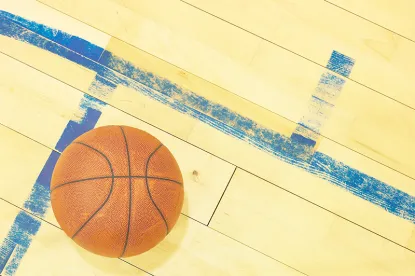In Game 3 of the first round of the 1991 NBA Eastern Conference playoffs between the New York Knicks and the Chicago Bulls, Michael Jordan produced one of his many memorable highlights when he eluded a double team on the baseline and took it to the rim and dunked over (or "posterized") Patrick Ewing. The Knicks were eliminated from the playoffs and the Bulls went on to win their first NBA Championship. After losing trademark battles over the use of his name in front of two lower Chinese tribunals, Jordan recently achieved a victory in another important Game 3 before the Supreme People's Court of China. In a notable decision, the Chinese high court partially reversed the lower court decision and invalidated sportswear company Qiaodan Sports Co.'s registration of the Chinese version of Jordan's name, "乔丹", but refused to cancel related registrations that used the transliteration or pinyin version of Jordan's last name, "Qiaodan" (pronounced cheow-dahn).
Jordan first brought suit against Qiaodan Sports in 2012 over the use of his name as a trademark on jerseys, sneakers and a host of sports-related and other products sold in Qiaodan Sports' thousands of retail locations in China. Jordan contested over 70 of Qiaodan's trademarks, including the use of a basketball player silhouette similar to the well-known Jumpman logo. Qiaodan registered to use the Chinese version of MJ's name first, beating Jordan to the hoop for the trademark rights to his Chinese name. Jordan's suit is emblematic of the problem faced by famous athletes and American multinationals that have, in some cases, found their attempts to thwart trademark squatters rejected, given that the law in China generally favors those who register first and marks that have been registered for five years.
Known for his tenacious play and lethal fourth-quarter finishing skills, Jordan kept pushing the case up the court and finally achieved a noteworthy (if partial) win. While the high court revoked Qiaodan's rights with respect to trademarks using the Chinese form of Jordan's name – finding that it was clearly associated with the famous name of Michael Jordan – the Chinese court permitted the company to employ trademarks using the pinyin version of Jordan's name (Qiaodan). Jordan had argued that he was well-known in China as "Qiaodan" and that the high court also should have called an offensive foul on those pinyin marks. The logic of the high court's decision to protect the Chinese form of his name but not the transliteration may be as inscrutable as the triangle offense, particularly without a written opinion; the lower court previously had reasoned that "Qiaodan" is merely the customary transliteration of the common surname "Jordan" and not specifically linked to the superstar Michael Jordan. The Supreme People's Court is the final word on the trademark issues, yet the series is not over, as Jordan may gain further relief from a separate lawsuit against Qiaodan Sports in a Shanghai court for unauthorized commercial use of his name.
Court watchers and international brands are optimistic that this narrow victory is a harbinger of stronger IP protection in China for Western individuals and companies and might provide some relief from trademark squatters. The ruling may impel more sports stars to file actions to invalidate Chinese trademarks that unfairly capitalize on their names, yet the best advice for securing Chinese rights is to beat the shot clock and register your mark first.








 />i
/>i

